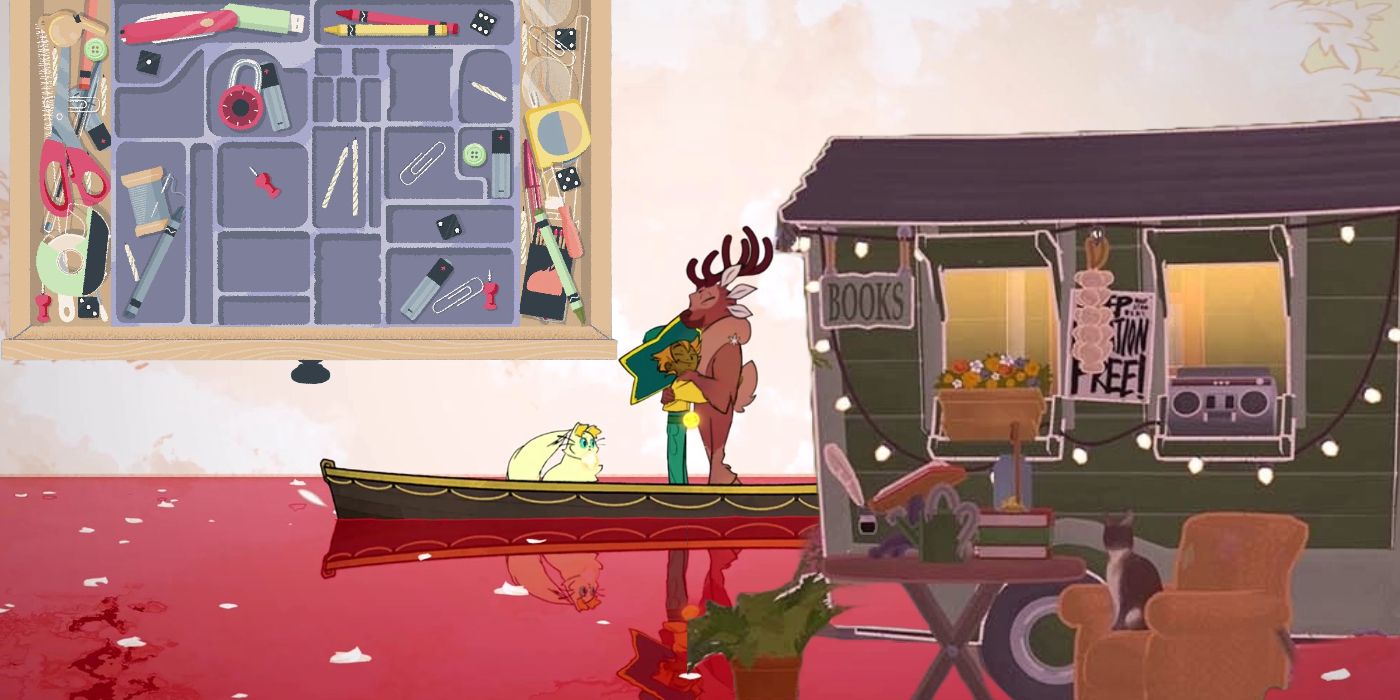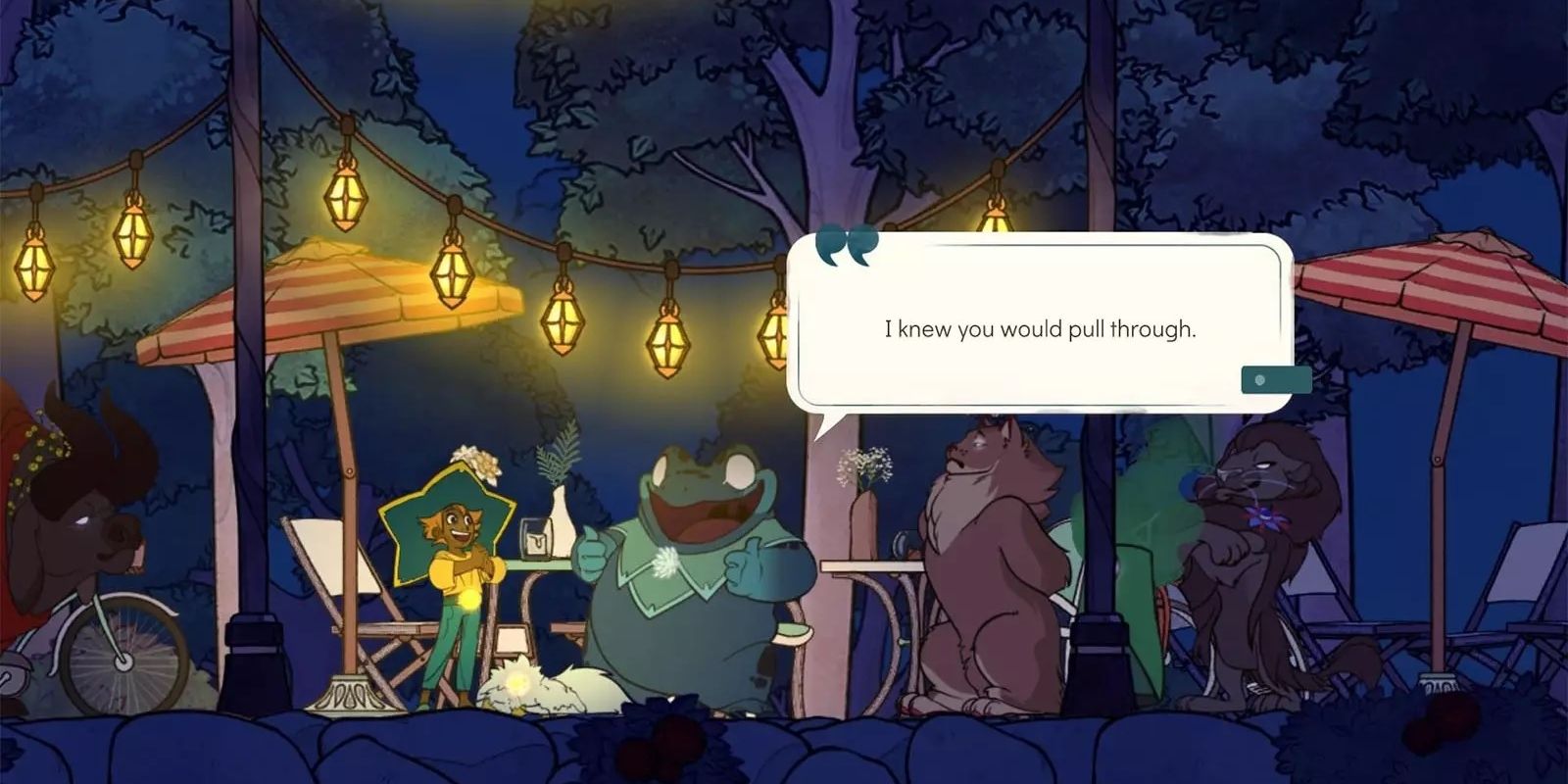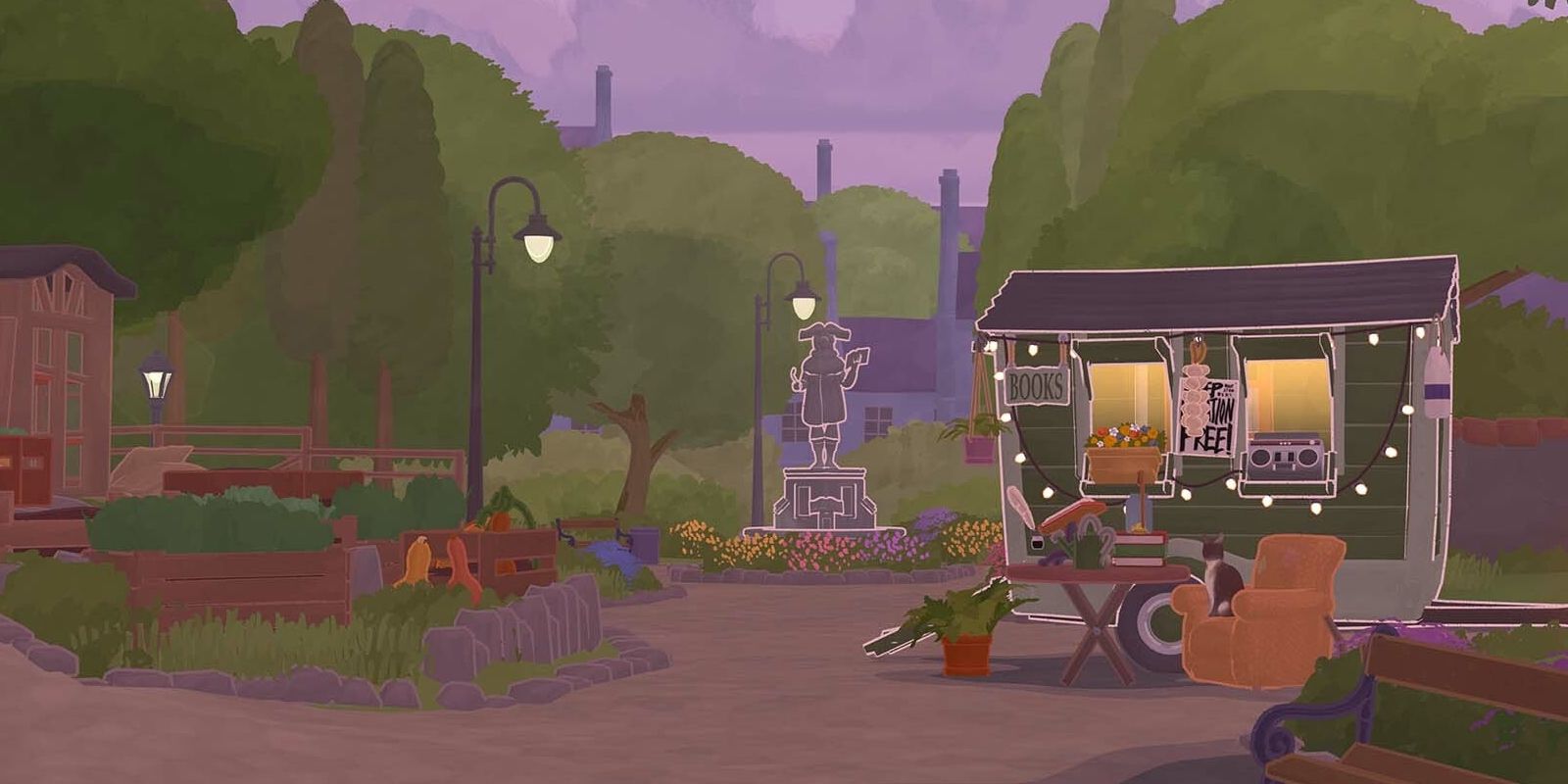Summary
- Wholesome and cozy video games offer a refreshing escape from darker and more violent titles, focusing on community, relationships, and uplifting narratives.
- These games attract gamers who were previously hesitant to enter the gaming world due to the industry's reputation for hostility, offering welcoming and inclusive communities.
- Indie developers dominate the wholesome subgenre, and their popularity is soaring thanks to social media communities, particularly on platforms like Steam and the Nintendo Switch.
It feels like everywhere they look, gamers are met with the "next great cozy game" the internet is insisting that they try — and players couldn't be more thrilled with this newfound cornucopia of chill, relaxing games. The subgenre of wholesome and cozy video games has been experiencing a tremendous rise in popularity over the last several years. More and more gamers are looking for relaxing titles that foster a positive mindset and offer an optimistic outlook on the world. Online communities have begun to grow around this subgenre on platforms like TikTok, YouTube, and Twitch.
Those who've shied away from gaming before due to its reputation for violence and hostile community spaces are beginning to show interest in gaming and the gaming industry because wholesome and cozy games appeal to them, and the communities surrounding them are much more likely to be welcoming.
Wholesome And Cozy Games Foster A Sense Of Optimism
Like many storytelling mediums, video games have steadily become darker in their content, storytelling, and aesthetic choices over time. Wholesome and cozy games tend to take the opposite approach, eschewing tragedy and violence for comfort and community. Many titles in this subgenre focus on building community and encourage the player to establish heartfelt relationships with the characters they interact with. Though they offer a wide variety of gameplay mechanics, life sims such as Disney Dreamlight Valley, Coral Island, Stardew Valley, and My Time At Sandrock place great value in the player's ability to cultivate lively, joyful communities through their efforts and actions.
Action-adventure and narrative-focused games that fit into the wholesome subgenre typically embody the story of an endearing protagonist accomplishing a difficult task, succeeding at a dream they have, or fulfilling a necessary role in the world that benefits others. Games like Spiritfarer, Planet of Lana, Mr. Saitou, and Lake hearten and uplift gamers through their satisfying emotional narratives and nuanced expressions of what matters in life. By helping those in need and opening up to the love their world has to offer, players benefit these in-game societies and improve the lives of everyone they meet in those digital worlds. These titles show gamers how kindness and generosity can make a difference in the world around them, even on a minor scale, inspiring hope that the same can be said of reality.
Another category of wholesome and cozy games turns its attention to the little things in life. Games like A Little to the Left, PowerWash Simulator, Tiny Bookshop, Fresh Start, and Sticky Business turn mundane tasks into beautiful, uplifting experiences. Many have compared these types of games to a similar concept recognized in Studio Ghibli films, placing emphasis on the subtle joys of living, like cooking, eating, cleaning, and caring for others. Games capture this feeling through uplifting music, beautiful art, cozy color palettes, and well-written scenarios that immerse the player in the life of the character they're inhabiting. Other seemingly pedestrian premises are elevated with charming details, such as the upcoming release Rolling Hills: Make Sushi, Make Friends, starring a robot sushi chef opening their own restaurant.
Wholesome Gaming Offers Community To Gamers On The Margins
Though many in the industry are working to improve the moderation of shared spaces, video games as a whole have a reputation for hostile environments, especially for those who already hold marginalized identities, such as, but not limited to, members of the LGBTQIA+ community, people of color, and women. Unfortunately, the communal spaces of popular online multiplayer games and fan communities for big-name single-player titles can hold negative connotations and experiences for people already on the margins. Many people have voiced their hesitancy to get into gaming because they don't want to be harassed by their teammates, opponents, or fellow players. Wholesome and cozy gaming spaces tend to be more welcoming to these groups for a variety of reasons.
One reason is that groups based around these games typically state community values like respect, kindness, and inclusivity outright, which can prevent unwelcoming atmospheres from developing in the first place. The team at Wholesome Games, creators of gaming showcase Wholesome Direct, openly state in their FAQ that the games they promote are curated based on "feelings of comfort, compassion, and coziness." They also make it very clear that the group "actively avoid[s] hateful content [and] bigotry," which lets people who are concerned about those concepts know that this space will be safe for them.
Another reason that wholesome and cozy games are attracting an audience that has typically shied away from the industry before is their likelihood to have accessibility features. Mainstream gaming communities often debate the merits of Easy modes, invincibility options, and other accessibility features. Some believe that all gaming content should be achieved through hard work and that offering easier difficulties devalues the purpose of a game. Others argue that external factors, such as real-world disabilities and impairments, can make gameplay more difficult for some players than others, which leaves them unable to enjoy the games they love. Developers of games categorized as cozy or wholesome tend to agree with the latter and add accessibility features to their games where possible. These features can include anything from adjustable difficulty levels to palette shifts for colorblind players and improved audio cues for visually impaired gamers.
Indie Developers Thrive In The Wholesome Subgenre
While multiple AAA games fit into the cozy and wholesome subgenre, the vast abundance of games that get sorted into these categories are from indie developers and publishers. The social media communities forged around this style of gaming bring smaller developers and publishers to the attention of large groups of players, skyrocketing their popularity and, therefore, allowing them to make even more of the games they're passionate about. Though there are wholesome and cozy games on every platform, Steam, and the Nintendo Switch see the most attention from these fans, connecting players with the independent developers and publishers who create and distribute games in those venues.
Though the mainstays of gaming are going absolutely nowhere, there is plenty of player attention to go around, and cozy and wholesome games continue to increase in both number and popularity. They draw new members to the world of gaming, make them feel welcome, and create space for titles that foster a comfortable, heartfelt, and optimistic experience for all players to enjoy.



